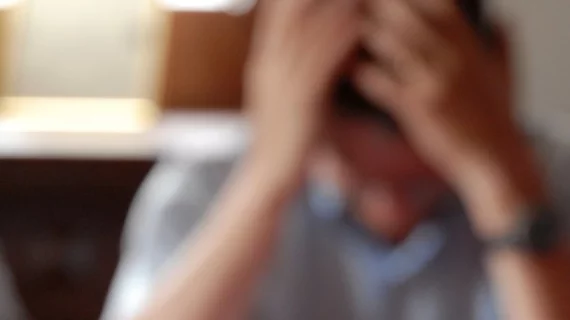'Worrisome trends': Burnout causing 36.9% of neuroradiologists to contemplate early retirement
The growing burnout epidemic is causing nearly 40% of neuroradiologists to contemplate early retirement, according to new survey data. Experts labeled the findings as "concerning" and issued a call for change.
In the fall of 2017, members of the American Society of Neuroradiology (ASNR) answered questions pertaining to their workloads, burnout symptoms, reported errors and how their roles as radiologists impacted their lives outside of the office. It also examined how increasing workloads in radiology affected their participation in non-clinical work, such as research, practice building and teaching.
The findings were published Friday in the European Journal of Radiology.
“Burnout and its consequences are not limited to the workplace, and it is not a benign phenomenon. It has been correlated with personal consequences such as substance abuse, depression, and suicide as well as workplace disruption from absenteeism, presenteeism, employment turnover and early retirement,” corresponding author Frank J.Lexa, MD, at the University of Pittsburgh and UPMC International, and co-authors disclosed.
Although the burnout survey was completed in 2017 before the onset of COVID-19, the authors of the study cautioned that their findings may soon play out across overburdened radiologists.
“This survey instrument raised significant implications for the possibility of a U.S. radiology workforce shortage in the near future,” the experts explained.
Of the 412 respondents, over half were reported to have teaching responsibilities. Of those participants, 86.2% revealed their increased workloads resulted in a reduction in teaching, mentorship and research.
Reading errors due to rushed interpretations were reported by 56.9% of respondents, and 85.2% admitted experiencing at least one symptom of burnout. Anxiety, depression, difficulty relaxing and fatigue due to increased workloads and longer hours were reported in over half of participants.
Equally concerning, the survey revealed that 36.9% of the surveyed neuroradiologists conceded to considering early retirement or career changes.
“Worrisome trends in the work environment and potential downstream effects on core work output, as well as neuroradiology as a profession, have continued in the setting of increasing clinical work demands,” the experts cautioned. “These data should provide a pre-COVID-19 reference for discussion to investigate and address these issues in the global neuroradiology work environment.”
You can view the detailed research in the European Journal of Radiology.

